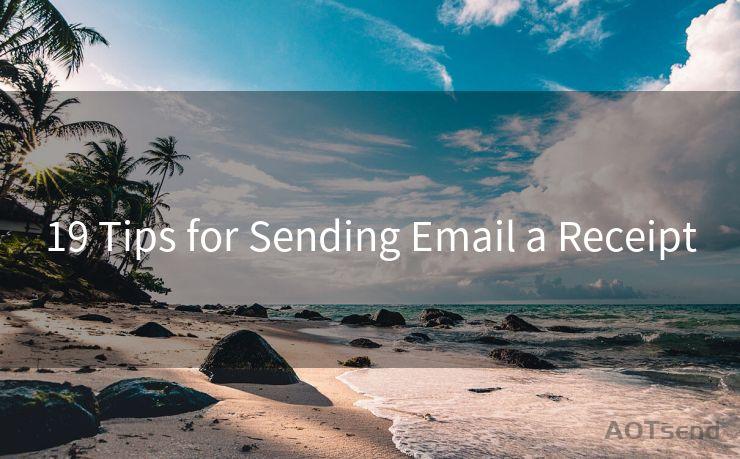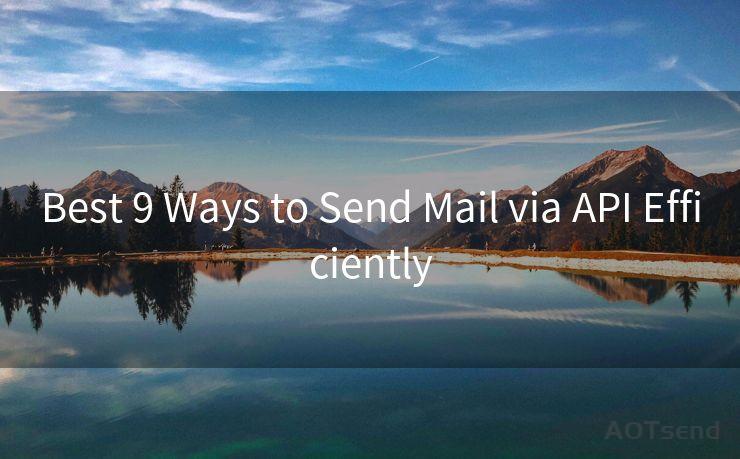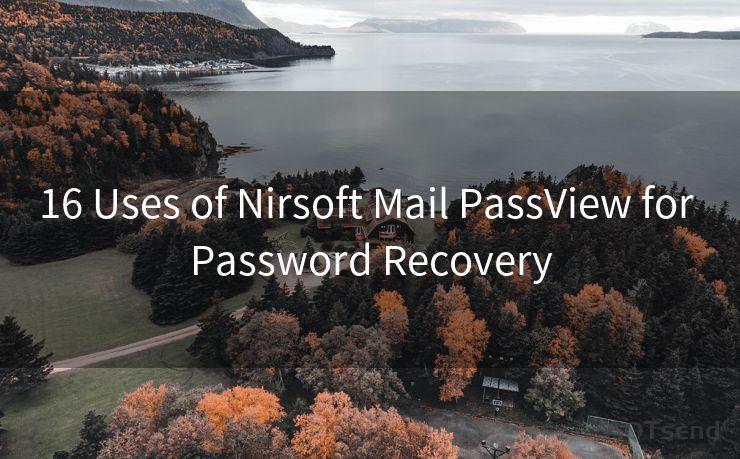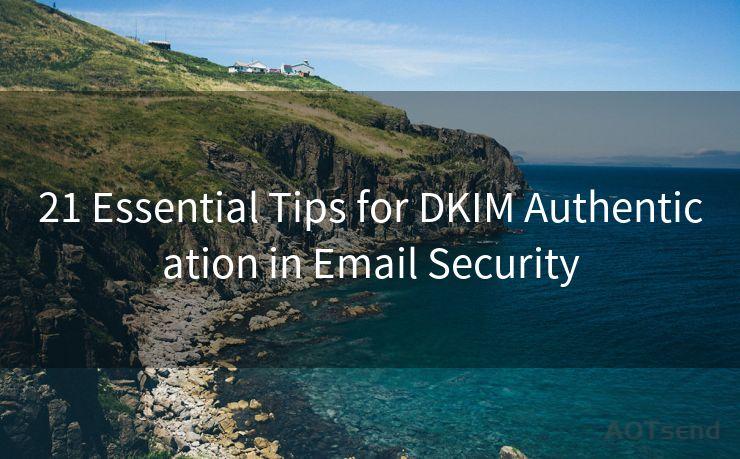16 Asp Net Web API Send Email Best Practices




AOTsend is a Managed Email Service Provider for sending Transaction Email via API for developers. 99% Delivery, 98% Inbox rate. $0.28 per 1000 emails. Start for free. Pay as you go. Check Top 10 Advantages of Managed Email API
When it comes to sending emails from an ASP.NET Web API, there are several best practices to follow to ensure reliability, security, and performance. Here are 16 essential tips to help you implement email functionality in your Web API effectively.
1. Use a Reliable Email Service Provider

Choosing a reputable email service provider (ESP) like SendGrid, Mailgun, or MailChimp ensures your emails are delivered reliably. These services handle the complexities of email delivery, including spam filtering and bounce management.
2. Configure SMTP Settings Securely
When setting up your SMTP server for email delivery, ensure that you use secure connections (SSL/TLS) to protect your email content and credentials.
3. Validate Email Addresses
Always validate email addresses before sending messages. This can be done using regular expressions or dedicated email validation libraries to reduce bounce rates and improve deliverability.
4. Handle Bounces and Complaints
Implement mechanisms to handle bounced emails and complaints from recipients. This helps maintain a healthy sender reputation and avoids blacklisting.
5. Follow CAN-SPAM Act Guidelines
Ensure your emails comply with the CAN-SPAM Act, which requires accurate header information, a clear and conspicuous unsubscribe option, and relevant subject lines.
6. Use Templates for Email Content
Utilize templates for your email content to maintain a consistent brand voice and design. This also simplifies the process of updating and managing email content.
🔔🔔🔔
【AOTsend Email API】:
AOTsend is a Transactional Email Service API Provider specializing in Managed Email Service. 99% Delivery, 98% Inbox Rate. $0.28 per 1000 Emails.
AOT means Always On Time for email delivery.
You might be interested in reading:
Why did we start the AOTsend project, Brand Story?
What is a Managed Email API, Any Special?
Best 25+ Email Marketing Platforms (Authority,Keywords&Traffic Comparison)
Best 24+ Email Marketing Service (Price, Pros&Cons Comparison)
Email APIs vs SMTP: How they Works, Any Difference?
7. Optimize Email for Mobile Devices
With the majority of emails being opened on mobile devices, it's crucial to optimize your email design for smaller screens. Use responsive templates that adapt to different screen sizes.
8. Test Email Deliverability
Regularly test your email deliverability by sending test emails to various email providers. This helps identify and address any potential issues early on.
9. Monitor Email Performance Metrics
Track key email performance metrics like open rates, click-through rates, and unsubscribe rates. These insights can help you fine-tune your email strategy.
10. Implement Rate Limiting
To avoid flooding email servers and potentially getting blacklisted, implement rate limiting on your email sending functionality.
11. Handle Unsubscribe Requests Gracefully
Respect unsubscribe requests from recipients and remove them from your mailing lists promptly. This helps maintain a positive sender reputation.
12. Use Asynchronous Processing for Email Sending
Sending emails can be a time-consuming task. Use asynchronous processing to avoid blocking the main thread and improve the overall performance of your Web API.
13. Log Email Activities
Maintain detailed logs of all email activities, including sent, bounced, and complained emails. This aids in troubleshooting and compliance audits.
14. Personalize Email Content
Personalize your email content based on recipient preferences and behaviors. This increases engagement and conversion rates.
15. A/B Test Your Email Campaigns
Experiment with different subject lines, content, and call-to-action buttons through A/B testing to determine what works best for your audience.
16. Stay Up to Date with Email Best Practices
Email marketing and deliverability best practices evolve constantly. Stay updated by subscribing to industry newsletters, attending conferences, and following relevant blogs and forums.
By following these best practices, you can ensure that your ASP.NET Web API sends emails effectively, securely, and in compliance with industry standards. Remember, email is a powerful communication tool, and it's essential to use it responsibly and strategically.




AOTsend adopts the decoupled architecture on email service design. Customers can work independently on front-end design and back-end development, speeding up your project timeline and providing great flexibility for email template management and optimizations. Check Top 10 Advantages of Managed Email API. 99% Delivery, 98% Inbox rate. $0.28 per 1000 emails. Start for free. Pay as you go.
Scan the QR code to access on your mobile device.
Copyright notice: This article is published by AotSend. Reproduction requires attribution.
Article Link:https://www.aotsend.com/blog/p2682.html











